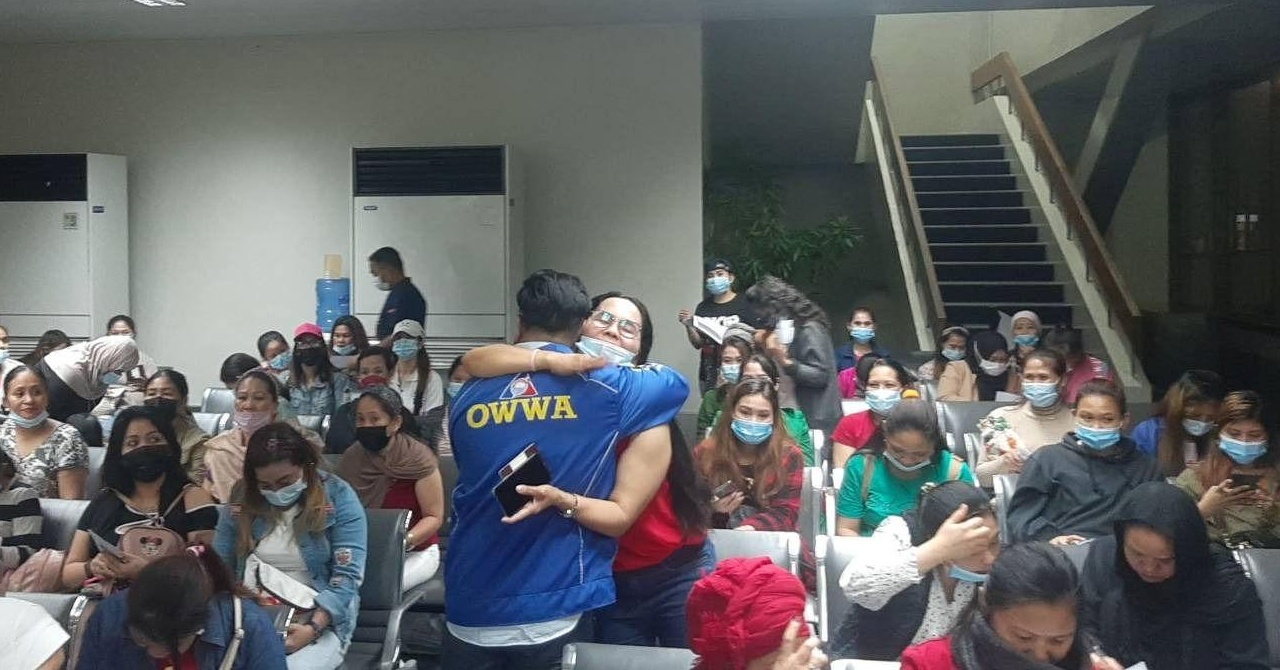Emergencies abroad can strike when you least expect them. Whether it’s a natural disaster, a conflict with your employer, or a serious health issue, knowing your repatriation rights as an OFW in Taiwan can mean the difference between feeling helpless and getting the help you need.
I’ve learned that the best way to face these moments is to be informed before things go wrong. So here’s what every OFW should know about requesting help and returning home safely when the unexpected happens.

Your Repatriation Rights as an OFW in Taiwan
When you’re working thousands of kilometers away from home, knowing your rights can give you the courage to act when things go wrong. As an OFW in Taiwan, you are protected by a set of repatriation rights that ensure you’re not alone during times of crisis or distress:
- Emergency Repatriation Assistance: The DMW and OWWA can help you return home if you’re affected by natural disasters, conflict, abuse, or serious illness.
- Legal and Humanitarian Aid: The MWO in Taipei offers legal counseling and dispute mediation to protect you from exploitation or contract violations.
- Government-Funded Repatriation: If a mass evacuation is needed, the government has allocated funds to cover your travel back to the Philippines.
- One Repatriation Command Center (ORCC): This 24/7 hotline simplifies and speeds up emergency assistance coordination between agencies.
- Medical and Psychological Support: If you’re struggling with health issues—physical or mental—OWWA can help assess your condition and coordinate a safe return.
- Protection Against Employer Retaliation: You have the right to report abuse without fear. The Philippine government ensures your repatriation and safety if you come forward.
These rights were created with your protection in mind. If you ever feel unsafe or overwhelmed, remember: you are not powerless. You are protected, and help is available.
When to Request Help
You can request repatriation assistance if you experience:
- Emergencies or disasters (e.g., earthquakes, typhoons, armed conflict)
- Health issues that cannot be managed in Taiwan
- Abuse, contract violations, or unsafe working conditions
- Sudden job loss or employer abandonment
- Severe mental stress or emotional crisis while abroad
Even if it doesn’t seem “urgent,” you’re entitled to help if your situation affects your well-being or safety.
How to Request Repatriation Assistance
- Contact the Migrant Workers Office (MWO) – Taipei
Located under MECO (Manila Economic and Cultural Office), the MWO is your first point of contact. They offer:
- Legal assistance
- Welfare support
- Repatriation coordination
Address: 7F, No. 99, Fuxing N. Road, Taipei
Hotline: (02) 8725-1001 ext. 114
Open: Monday–Friday, 9:00 AM–6:00 PM
- Reach Out to OWWA’s Repatriation Program
The Overseas Workers Welfare Administration (OWWA) covers emergency repatriation, especially in cases of abuse, illness, or employer issues. You’ll need to provide:
- Valid Passport
- OEC or Employment Contract
- Personal contact info
- Exit documents (if applicable)
- Use the One Repatriation Command Center (ORCC)
If you’re in crisis, the DMW’s ORCC hotline operates 24/7 to assist OFWs globally.
Hotline: 1-348 (Philippines)
Email: repat@dmw.gov.ph
They coordinate between OWWA, DFA, and MWO for faster response.
What Documents You’ll Need
Having these ready can help speed up your request:
- Valid passport
- Government-issued ID
- OEC or work contract
- Exit visa/travel permit (if applicable)
- Temporary address in Taiwan
- Updated contact details
- Incident report or proof of abuse (if applicable)
Pro tip: Keep scanned copies of these in your email or cloud storage, just in case you lose your bag or documents.
How Community Groups Can Help
Don’t underestimate the power of your kababayan community in Taiwan. Here’s how they help:
- Immediate support: Relief goods, referrals, transportation help.
- Translation & form assistance: Useful when reporting incidents or filling out paperwork.
- Advocacy: They can connect you with local authorities or media when urgent action is needed.
- Emotional support: Just having someone to talk to helps ease the fear and anxiety of a crisis.
Community networks often work closely with MECO and OWWA during emergency responses—especially during disasters like the Hualien earthquake.
Final Tips for Preparedness
- Save important hotline numbers on your phone
- Prepare a digital backup of all vital documents
- Join local OFW support groups in your area
- Don’t wait until it’s too late—early reporting can save lives
Frequently Asked Questions
What is the fastest way to request repatriation in Taiwan?
Contact the Migrant Workers Office in Taipei or call the ORCC 24/7 hotline for urgent cases.
Can I request repatriation even if I wasn’t abused?
Yes. Medical issues, mental stress, contract violations, or job loss are valid grounds too.
Is repatriation assistance free?
Yes, for registered OFWs, OWWA and government offices provide repatriation at no cost.
Who can I approach locally aside from MECO?
Community groups and accredited Filipino organizations in Taiwan often coordinate with MECO during emergencies and can help guide you.
Closing Thoughts
As an OFW in Taiwan, it’s easy to feel pressure to endure hardships quietly. But you don’t have to wait until things get worse before asking for help. Repatriation assistance exists because your safety, dignity, and well-being matter—no matter where you are. Whether you’re facing abuse, feeling overwhelmed, or struggling with health issues, there are clear steps and support systems in place to bring you home safely. I’ve seen fellow workers hesitate out of fear or shame, but know this: asking for help isn’t weakness—it’s wisdom. Equip yourself with the right information, save the hotline numbers, and talk to people you trust. And if you ever feel like you’re alone in your struggle, remember that thousands of OFWs have gone through this and made it back home—stronger and supported. Help is closer than you think. All it takes is one brave step forward.
